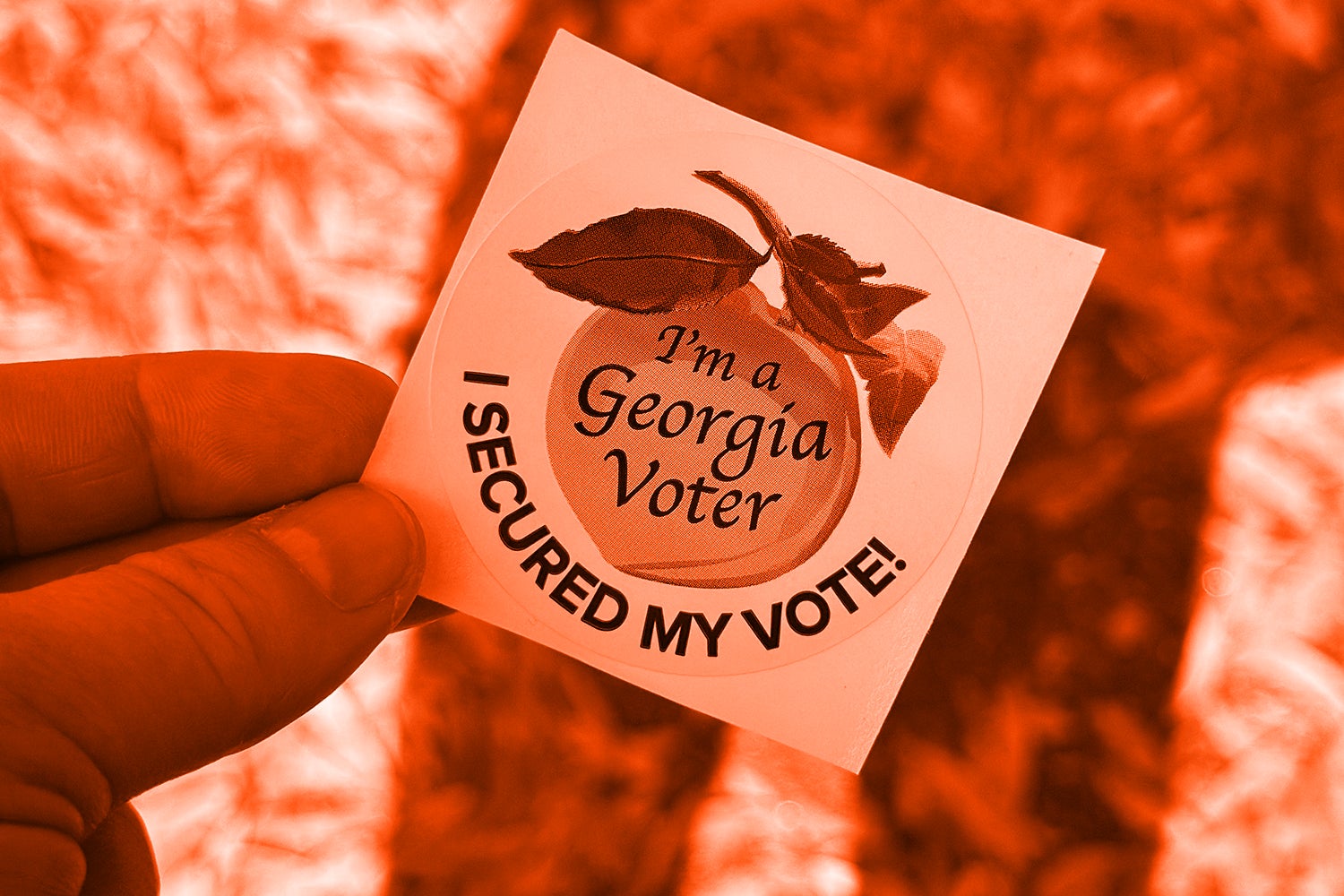In Georgia, energy prices are on the ballot
An election for an obscure utility board in The Peach State is finding itself in the national spotlight. Two challengers are vying to snag seats on the five-person Public Service Commission (PSC), a body that oversees electric and gas utilities. If the state’s dominant electric company, Georgia Power, wants to build a new plant or raise rates, it has to go through the PSC.
For years, the body has acted largely like a rubber stamp, greenlighting a long string of rate hikes, an imbalance challengers aim to right. They also differ from the incumbents in terms of what energy sources should address rising demand: more fossil fuels or greater emphasis on renewables like solar. A victory for the challengers would stand as some of the loudest pushback yet against both rising costs and fossil-fuel interests.
What you can do: If you live in Georgia, cast your vote tomorrow! If you don’t, you can help get people to the polls for this oddball off-year election: The Environmental Voter Project, a nonpartisan group focused on boosting eco-voter turnout, is organizing phone banks today and tomorrow.
Hey! Cool roof!
The right coat of paint brightens, transforms, and renews. It can also help keep homes noticeably cooler. Researchers at the University of Sydney have developed a prototype of a reflective paint that can reduce surface temperatures by nearly 11 degrees F. The paint is made from what’s known as a fluorinated polymer and reflects about 96% of incoming solar radiation.
The team paired it with a UV-resistant topcoat that encourages the formation of dew, which can then be captured to supplement local supplies. Unfortunately, The Guardian reports, fluorinated paints are currently restricted due to environmental concerns, but the team is working on a water-based version that they hope can be produced and sold at scale.
What you can do: If you are installing a new roof, consider a “cool roof”—that is, one made with light-colored tiles or reflective materials that absorb less solar radiation. Even small changes, like adding shade trees or using lighter exterior colors, can help shield a home from heat.
Zeroing in on a flight’s true impact
The emissions of your travel might be higher than the numbers on Google Flights and other online calculators indicate. Many trackers usually only consider carbon dioxide emitted from fuel burn, and leave off other planet-warming factors like contrails, high-altitude water vapor, and nitrogen oxides.
A new model published in Nature Communications Earth & Environment includes these factors, as well as the emissions debt of aircraft manufacturing, fuel production, and real-world flight paths. Its findings: A flight’s actual emissions can be up to twice as much as standard estimates, especially for long-hauls. “The numbers are shocking,” author Jhuma Sadhukhan told New Scientist.
What you can do: Online emissions estimates might still be one of the best options available for travelers looking to trim the impact of travel, but they’re not the only way to cut back. We ranked 8 ways to make journeys a little gentler on the Earth.
The ultra-rich emit way (way) more than their share
A damning new analysis from Oxfam and the Stockholm Environmental Institute shows that the wealthiest 0.1% of Americans emit carbon at 4,000 times the rate of the world’s poorest 10%: about 2.2 tons per day compared to 82 grams. The global average is 12 kilos. (We’ll pause for a second here so you scream profanities into the void…)
If everyone emitted like the richest 0.1% of the world, the carbon budget (that is, the amount we can emit annually to stick to the U.N.’s climate goals) would be used up in less than 3 weeks. To fix the problem, Oxfam recommends many of the same steps that have already been said ad nauseam: Tax the super-rich, eliminate lobbying that works against the climate, and ensure the most vulnerable have a louder voice in global decision-making—like, for example, at the upcoming COP30 U.N. climate summit in Brazil.
What you can do: Support policies that hold high emitters accountable: carbon taxes, emissions transparency requirements for corporations, and laws that put the burden of climate relief and adaptation on the polluters.

